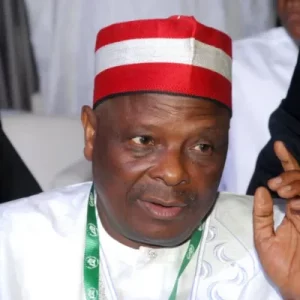In June 2023, Nigeria took a bold step: it ended the confusing system of multiple exchange rates and finally let the naira float. No more special windows. No more hidden deals. For the first time in years, the real value of the naira would be determined by the market, not by backroom arrangements.
This historic shift was led by Yemi Cardoso, the Governor of the Central Bank of Nigeria (CBN), who called the previous system “broken”. And he had a point. That system allowed a select few to profit by buying dollars cheaply from the CBN and reselling them at much higher rates on the black market, a classic case of rent-seeking. It didn’t build factories, it didn’t create jobs, and it drove away serious investors.
“If Nigeria can follow through by fixing infrastructure, enforcing contracts, and reducing red tape, then this could be the beginning of a real turnaround.”
A currency trap that scared off investors

For years, Nigeria kept the naira in a tight grip. Officially, this was meant to “protect” the economy from shocks. In reality, it only created a false sense of stability. The parallel market told the truth: in early 2023, the naira traded at around ₦460 to the dollar officially, while the street rate hit ₦750. That massive gap of over 60 percent became a goldmine for arbitrage and a nightmare for foreign investors.
Between 2011 and 2023, foreign direct investment (FDI) into Nigeria fell from $8.84 billion to just $468 million, according to the National Bureau of Statistics (NBS). That’s not a slowdown; that’s a collapse. Investors were clear: they didn’t trust Nigeria’s currency system, and they weren’t going to risk their money.
A tough decision with real consequences
Floating the naira was never going to be easy. Inflation shot up, hitting 33.95 percent in May 2024, the highest in almost 30 years. Food and fuel became more expensive, and daily life got harder for many Nigerians.
But there’s hope. By June 2025, inflation had fallen to 22.97 percent, the second straight month of decline. The naira, now trading at about ₦1,547 to the dollar, has finally caught up with the parallel market. That’s a big deal. It signals that the market is stabilising and becoming more predictable.
Investors are taking notice
There are signs that foreign investors are starting to return. In Q1 2024, the Nigerian Exchange (NGX) saw foreign portfolio inflows jump to ₦93.37 billion, up from just ₦12.2 billion the quarter before. That’s not just a rebound; it’s a signal of renewed confidence.
Between January and April 2025, the NGX recorded ₦2.7 trillion in total investor transactions, the highest ever. That’s a 43.3 percent increase compared to the same period in 2024. Foreign portfolio investment (FPI) now makes up more than one-third of market activity. In fact, foreign transactions rose 162.6 percent year-on-year, climbing from 13.7 percent in early 2024 to 32.3 percent by 2025.
Even Nigeria’s tech scene is bouncing back. Lagos-based fintech startups raised over $150 million in Q1 2024 alone, according to Partech Africa. With the naira now more stable and confidence growing, Nigeria is slowly becoming attractive to both short-term traders and long-term investors.
Reforms go beyond currency
This isn’t just about the naira; it’s part of a broader reform package. The CBN has made big changes to clean up the foreign exchange market, improve transparency, and restore credibility. Cardoso’s team has also kept interest rates high at 27.5 percent to control inflation and support the naira’s value.
International lenders are paying attention. The International Monetary Fund (IMF) described the CBN’s reforms as “necessary and timely”, while market analysts increasingly view Nigeria as an attractive frontier-market opportunity.
With geopolitical tensions from U.S. trade uncertainties to Middle-East instability disrupting traditional investment hubs, fund managers are shifting focus toward high-potential emerging markets. Nigeria, with its large population, growing tech ecosystem, and reform momentum, is fast becoming a compelling option if it stays the course.
But challenges remain
Floating the naira is a strong start, but it’s only a start. For Nigeria to truly unlock the power of FDI, deeper reforms are needed. Investors still worry about poor roads, unreliable electricity, policy inconsistency, and security issues. These are long-standing concerns, and they must be addressed.
A big issue is capital repatriation. In the past, investors struggled to take their profits out of Nigeria. “The government must ensure investors can get their money in and out of Nigeria without hurdles,” said Yusuf Oladehinde, a currency analyst at a top Nigerian bank. “Repatriation bottlenecks were one of the biggest complaints. That has to change.”
Nigerians are still feeling the pain
For ordinary citizens, a weaker naira means higher prices, especially for imported goods. It also means shrinking purchasing power. The government needs to cushion this impact with policies like food subsidies, direct cash transfers, and small business support. “The long-term benefits must not come at the cost of short-term hunger,” said a welfare economist.
A second chance to get it right
Nigeria has tried currency reform before in 2016 and again in 2020 but always backed out when the pressure got too much. This time feels different. Oil revenue is no longer enough. Debt is piling up. There’s no space for half-measures.
Floating the naira is a tough choice, but the right one. It shows the world that Nigeria is serious, not just talking about reform but doing it. Investors don’t expect perfection, but they do want consistency.
If Nigeria can follow through by fixing infrastructure, enforcing contracts, and reducing red tape, then this could be the beginning of a real turnaround.
From crisis to opportunity
This is not just a currency story. It’s a story about trust. Nigeria is starting to rebuild that trust, one step at a time. The global investment community is watching closely. This is a rare second chance, and if Nigeria gets it right, the benefits could be enormous.
Now the question is: will Nigeria keep going or fall back?
This isn’t just about exchange rates; it’s about restoring Nigeria’s credibility in the eyes of the world.
Oluwatobi Ojabello, senior economic analyst at BusinessDay, holds a BSc and an MSc in Economics as well as a PhD (in view) in Economics (Covenant, Ota).
Stay ahead with the latest updates!
Join The Podium Media on WhatsApp for real-time news alerts, breaking stories, and exclusive content delivered straight to your phone. Don’t miss a headline — subscribe now!
Chat with Us on WhatsApp








